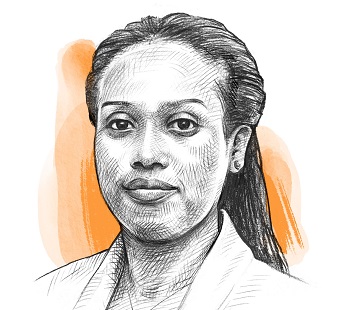Varuna, a regional ambition for biodiversity
Objective
-
€10mBUDGET
-
01/01/2022PROJECT START
-
48 monthsDURATION
The hotspot’s exceptional endemic biodiversity gives a strong identity to the Southwest Indian Ocean region. However, this identity is threatened by pressure on ecosystems. All the endemic birds of Mauritius are classified as threatened, except for just one species.
The erosion of biodiversity jeopardises the ecosystem services it provides to people: supply (food, fresh water, energy, medicinal resources), regulation (climate, soil, erosion prevention and pollination) and culture (recreation, knowledge production). Private sector growth plans still take little account of these ecosystem services. The level of preservation of these ecosystems varies greatly from one hotspot country to another and between terrestrial areas and marine areas.
The overall objective of the Varuna programme is to contribute to preserving the hotspot’s biodiversity for the benefit of the inhabitants of the region, by raising awareness, building capacities and pooling the efforts of all the public, private and civil society stakeholders.
Three areas of operation
The Varuna programme is based on three main components.
1- Structure networks of regional stakeholders to encourage coordinated efforts to preserve biodiversity
• Structure a network of managers of protected marine areas for the Southwest Indian Ocean region: Réserves Naturelles de France will lead this network in order to pool the tools, practices and experiences to ensure a more sustainable management of marine protected areas
• Structure a network of academic stakeholders on natural capital and ecosystem services: the universities of Mascareignes and Mauritius are going to develop research programmes dedicated to natural capital and ecosystem services. Varuna will facilitate the production and dissemination of knowledge on these issues in the region
• Strengthen the dialogue between public and private stakeholders on the issues of biodiversity, natural capital and Nature-based Solutions: this action will be conducted by Cap Business Indian Ocean, the union of chambers of commerce and industry in the region. CAPBOI will support the coordination of regional platforms for public/private/civil society dialogues in order to strengthen links between the stakeholders, in particular private stakeholders.
2- Support the integration of issues concerning ecological transition among economic actors
• Build the capacities of companies to measure their impact on biodiversity and integrate issues concerning natural capital: this action will also be conducted by Cap Business Indian Ocean, with the objective of providing training in natural capital accounting to the member companies of CAPBOI and launching a study on the impacts on biodiversity of the activities of the companies in the region
• Finance private sector initiatives with the aim of limiting their impacts on biodiversity: a €2.5 million call for projects will be launched to encourage the private sector to integrate natural capital into their activities and invest in Nature-based Solutions. This action will be conducted by Expertise France.
3- Promote the contribution of research to the science and society dialogues on biodiversity
• Mobilise various dialogue tools for biodiversity: the French National Research Institute for Sustainable Development will set up dialogue tools (travelling exhibition, videos, forum theatre) for young people, journalists and public administrations in order to raise awareness and inform about biodiversity issues in the area
• Publication of a digital popular science magazine on biodiversity issues in the Indian Ocean led by the association Naturalistes de Mayotte
• Coordination of the dialogue between conservators and users of forest resources: this action will be conducted by the French Agricultural Research Centre for International Development (CIRAD) in Madagascar and the Comoros. It will experiment with sharing the practices and visions of landscape management in living labs, for example, to promote the use of agroecological and agroforestry practices.
For further reading: Indo-Pacific: technical cooperation to operationalise France’s strategy


